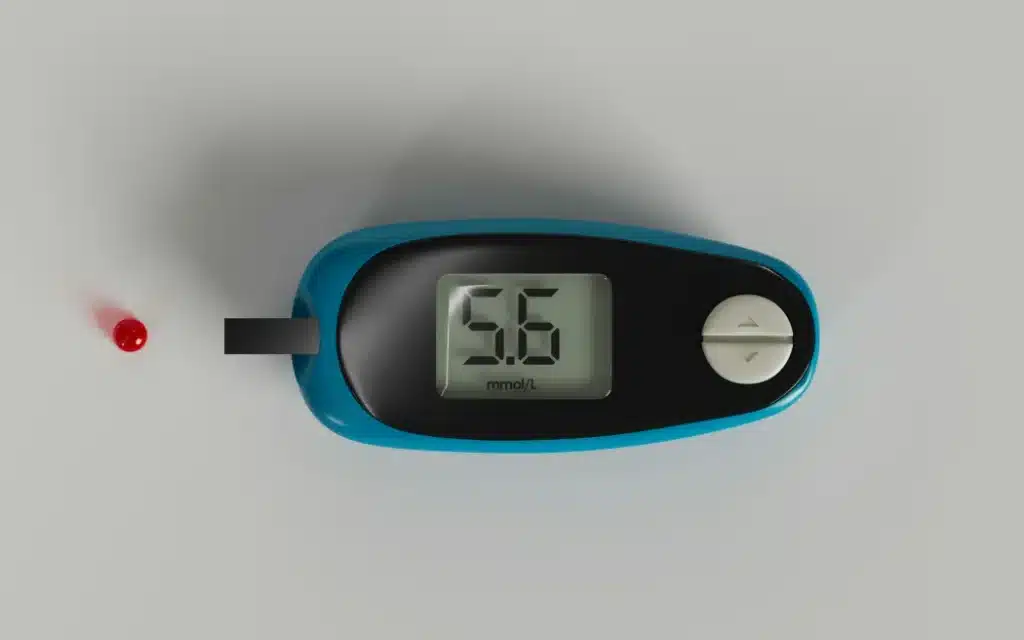The question of whether to start using a glucose monitor, even without a diabetes diagnosis, has become a topic of discussion among health enthusiasts and professionals alike. With the rise of continuous Blood Glucose Meter (CGM) technology, individuals are increasingly interested in understanding how their bodies respond to various foods and activities. But is using a Blood Glucose Meter beneficial for non-diabetics, or is it an unnecessary health fad? This blog explores the potential benefits and considerations of using a Blood Glucose Meter without diabetes.
Understanding Glucose Monitoring
Before diving into the reasons behind using a glucose monitor, it’s essential to understand how these devices work. A glucose monitor calculates your blood’s glucose (sugar) content. Traditional methods involve fingerstick tests, while CGMs provide real-time data through a sensor placed on the skin. This data can help individuals track their blood sugar levels throughout the day, offering insights into how different foods, exercises, and lifestyle choices affect their glucose levels.
The Science Behind Glucose Monitoring for Non-Diabetics
The primary reason for using a glucose monitor is to manage blood sugar levels. For diabetics, this is a crucial aspect of their daily routine. However, non-diabetics are also exploring the benefits of monitoring their glucose levels. The main rationale is to gain a deeper understanding of how their body metabolizes carbohydrates and how different lifestyle factors impact their blood sugar.
For instance, by using a Blood Glucose Meter, non-diabetics can observe how their blood sugar levels spike after consuming certain foods, such as sugary snacks or processed carbohydrates. This information can be invaluable for those looking to optimize their diet, manage energy levels, or even improve athletic performance. Understanding these fluctuations can lead to more informed choices and better overall health management.
Potential Benefits of Using a Glucose Monitor Without Diabetes
Enhanced Dietary Awareness
One of the most significant benefits of using a Blood Glucose Meter is the increased awareness of how specific foods affect blood sugar levels. Even non-diabetics can experience significant glucose spikes and crashes, which can influence mood, energy levels, and overall well-being. By identifying these patterns, individuals can make more informed dietary choices, opting for foods that provide sustained energy and prevent sugar crashes.
More Read About : As Diabetes Battle Intensifies, Focus Shifts to Dexcom, Abbott
Improved Metabolic Health
Monitoring glucose levels can also provide insights into metabolic health. Consistently high blood sugar levels can indicate insulin resistance, a precursor to type 2 diabetes. While not a diagnostic tool, a glucose monitor can help non-diabetics identify early signs of metabolic issues and take proactive steps to improve their health. This may include adjusting their diet, increasing physical activity, or seeking medical advice.
Optimized Athletic Performance
Using glucose monitors to maximize training and performance is becoming more and more common among athletes and fitness enthusiasts. Understanding how their bodies respond to different types of exercise and nutrition allows them to fine-tune their routines for better results. For instance, knowing the optimal time to consume carbohydrates before a workout can help maintain energy levels and enhance performance.
Personalized Health Insights
The data from a Blood Glucose Meter can offer personalized health insights that are difficult to obtain through other means. For example, individuals may discover that they have a delayed glucose response to certain foods or that stress significantly impacts their blood sugar levels. These revelations may result in more individualized and successful wellness and health initiatives.
Considerations and Cautions for Using a Glucose Monitor
While there are potential benefits to using a Blood Glucose Meter without diabetes, there are also important considerations and cautions.
Accuracy and Interpretation
The accuracy of the Blood Glucose Meter can vary, and interpreting the data without proper medical guidance can be challenging. Non-diabetics may misinterpret normal fluctuations as problematic, leading to unnecessary anxiety or dietary restrictions. It’s crucial to understand that some variability in blood sugar levels is normal and not necessarily a cause for concern.
Cost and Accessibility
Another factor to consider is the cost and accessibility of the Blood Glucose Meter. While prices have decreased, CGMs can still be expensive, and not all insurance plans cover them for non-diabetic use. Additionally, some devices may require a prescription, limiting access for those interested in experimenting with Blood Glucose Meter.
Potential Obsession and Over-Tracking
There’s also a risk of becoming overly focused on glucose data, leading to an unhealthy obsession with food and blood sugar levels. This hyper-focus can detract from a balanced approach to health and well-being. It’s essential to use the Blood Glucose Meter as a tool for gaining insights rather than as a strict metric to be controlled at all times.
The Role of Healthcare Providers
Before deciding to start using a Blood Glucose Meter, consulting with a healthcare provider is advisable. They can offer guidance on whether this tool is appropriate for your health goals and help interpret the data accurately. Additionally, they can provide recommendations on managing any identified issues, such as insulin resistance or abnormal glucose patterns.
Conclusion: Is Using a Glucose Monitor Right for You?
The decision to start using a Blood Glucose Meter without diabetes ultimately depends on individual health goals and preferences. While there are potential benefits, such as enhanced dietary awareness and improved metabolic health, there are also considerations, including cost, accuracy, and the risk of over-tracking. For those interested in optimizing their health, a Blood Glucose Meter can offer valuable insights into how their body responds to various factors. However, it’s crucial to approach this tool with a balanced perspective and seek professional guidance when necessary.
In conclusion, using a glucose monitor can be a valuable addition to a non-diabetic health toolkit, providing personalized insights and helping to optimize overall well-being. However, like any health-related decision, it’s essential to weigh the potential benefits and drawbacks carefully. As this trend grows, more individuals will likely explore the possibilities of Blood Glucose Meter, to a broader understanding of metabolic health and personalized wellness.


